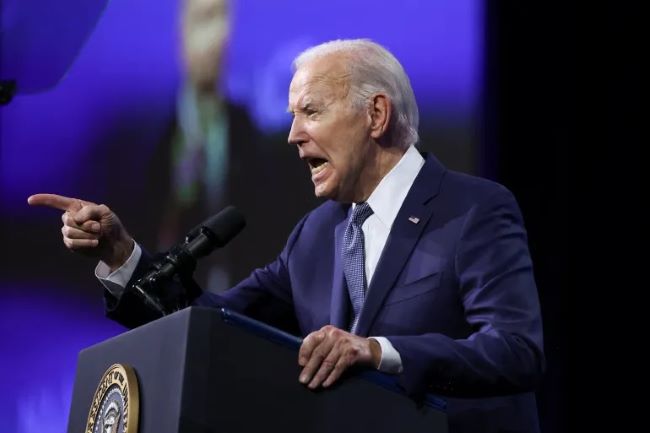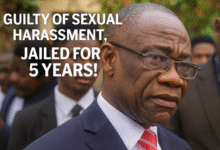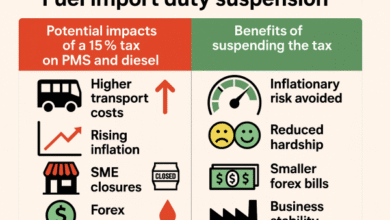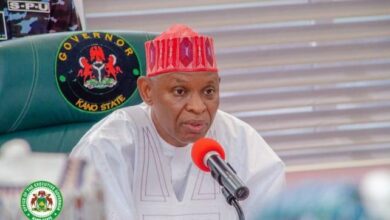Fact-Check: Has President Biden dropped out of the U.S. Presidential race?

Recent reports from Newsmax indicate that President Joe Biden is likely to withdraw from the 2024 presidential race due to his perceived deteriorating health status, with speculation that he may announce this decision as soon as this weekend.
This information comes from Mark Halperin, a commentator for Newsmax, who cites multiple Democratic sources. Halperin also noted that Biden is not expected to endorse Vice President Kamala Harris as his successor, which would lead to an open convention for the Democratic Party to select its nominee.
Biden’s doctor dismisses White House neurologist visit concerns
Biden’s Withdrawal and Endorsement Situation
- Withdrawal from Race: Halperin’s report suggests that Biden has agreed to step down as the Democratic nominee, with preparations underway for a speech announcing his decision. The rationale behind this potential withdrawal includes concerns about Biden’s ability to win a second term and the impact on down-ballot Democratic candidates in the upcoming elections.
- Non-Endorsement of Harris: The Newmax reports confirm that Biden is unlikely to endorse Harris, which would allow for a broader field of candidates to compete for the nomination at the Democratic National Convention scheduled for August 19-22 in Chicago. This situation has sparked discussions about potential candidates who might run against Harris, including California Governor Gavin Newsom and Michigan Governor Gretchen Whitmer.
Prognosis for the Democratic Party
The Democratic Party faces significant challenges as it approaches the November elections. Key figures within the party, including former President Barack Obama and House Democratic leaders, have expressed concerns about Biden’s viability as a candidate. They fear that his continued candidacy could jeopardize not only his own chances but also the prospects for Democrats in congressional races.
- Pressure on Biden: There has been mounting pressure from various Democratic leaders for Biden to reconsider his candidacy. Reports indicate that nearly 20 Democratic members of Congress have publicly called for him to withdraw, citing concerns about his performance and the party’s overall strategy for the upcoming elections.
- Health Concerns: Biden’s health has also been a topic of scrutiny, particularly following his recent mild COVID-19 symptoms, which has raised questions about his capacity to campaign effectively.
Standings of All Parties
As of now, the political landscape shows a stark contrast between the Democratic and Republican parties. While Biden’s situation appears increasingly precarious, Republicans are presenting a unified front, particularly in the wake of former President Donald Trump’s resilience despite recent challenges. This dynamic could influence voter sentiment as the elections approach, with many observers noting that the Democrats need to quickly solidify their strategy and candidate lineup to remain competitive. In summary, while Biden’s withdrawal from the race and refusal to endorse Harris are not officially confirmed by his campaign, the reports suggest a significant shift in the Democratic Party’s strategy leading into the crucial election season. The upcoming convention will be pivotal in determining the party’s direction and candidate for the presidency.
- Complex Replacement Process: Biden’s withdrawal would trigger a need for the Democratic National Committee (DNC) to modify its nomination procedures. This could involve convening various caucuses and committees to discuss and endorse a new candidate, potentially leading to a contested convention if no clear successor emerges.
- Legal and State Challenges: The party would face legal hurdles at the state level regarding ballot changes, especially if Biden’s name is already printed on ballots. Each state has different laws governing how candidates can be replaced, and this could lead to confusion and potential lawsuits.
- Timing and Strategy: The timing of Biden’s withdrawal would be critical. If it occurs close to the election, it could complicate the process of selecting a new candidate and rallying support behind them. The DNC would need to act quickly to ensure a smooth transition and maintain party unity.
Impact on Party Unity and Leadership
- Internal Divisions: Biden’s withdrawal could exacerbate existing divisions within the Democratic Party, particularly between the establishment and progressive factions. This could lead to a protracted battle for the nomination among various candidates, potentially weakening the party’s overall cohesion as the election approaches.
- Emergence of New Candidates: The party would need to quickly identify and rally behind a replacement candidate. Potential candidates include Vice President Kamala Harris, California Governor Gavin Newsom, and others. Each candidate would bring their own strengths and weaknesses, impacting the party’s appeal to various voter demographics.
Electoral Considerations
- Voter Sentiment: Biden’s withdrawal could shift voter sentiment, particularly among Democratic voters who may feel uncertain about the party’s direction without a clear leader. This could affect turnout and support in the general election.
- Electoral College Dynamics: The Electoral College process could provide a mechanism for Democrats to avoid complications if Biden withdraws after becoming the official nominee. Electors could potentially vote for a different candidate, but this would depend on the legal framework and state laws governing such a situation.
Conclusion – the FACT:
Though there are serious calls and expectations that President Biden should bow out of the November Presidential race, on account of his health status, there is no official confirmation of his having done so thus far. Not from Biden himself and not from the Democratic Party. The position of Mark Halperin, the commentator for Newsmax therefore remains speculative.











